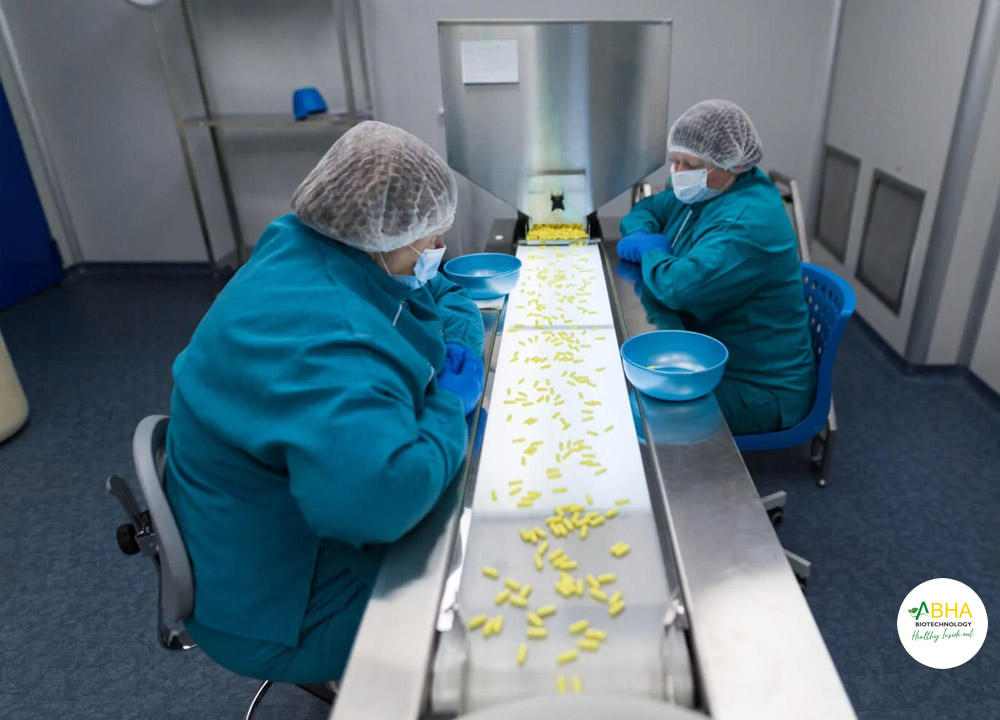
Nutraceuticals are a hybrid of “nutraceuticals” and “pharmaceuticals” and include a variety of products derived from natural sources that provide health benefits beyond the original diet. This blog explores the journey of foods from their origins on farms and natural habitats to becoming vibrant nutraceuticals and platforms that promote health and well-being.
Nutrition and Health
Nutraceuticals are vitamins, minerals, herbal extracts, amino acids, and other dietary supplements known for their health benefits. Here’s an overview of their journey:
1. Natural sources:
Plants and herbs: Many foods come from plants and herbs grown on farms or harvested from wild habitats. Marine sources: Omega-3 fatty acids and other nutrients come from marine organisms such as fish and algae.
2. Extraction and processing:
Extraction methods: Extract active compounds from raw materials using methods such as solvent extraction, cold pressing, or steam distillation.
Purification: The purification process ensures the removal of impurities and the standardization of active ingredients.
3. Formulation and Manufacturing:
Food Combinations: Food formulations combine active ingredients to optimize health benefits and bioavailability.
Tablets and Supplements: Process foods into tablets, capsules, or liquid form for easy consumption and absorption.
Legal and quality standards
1. Inspections:
- Laws regarding dietary supplements vary from country to country and are considered dietary supplements.
- Regulatory bodies (eg: FDA, EFSA, FSSAI) monitor the safety, effectiveness, labeling and claims of medicines.
2. Quality Assurance:
Good Manufacturing Practices (GMP): Manufacturers adhere to GMP guidelines to nutraceuticals
ensure quality and safety.
Testing and Certification: Products are tested for purity, potency and absence of impurities.
Applications and Benefits
1. Health and fitness:
- Nutraceuticals have many health benefits, including immune support, heart health, cognitive function and joint health.
- It is often used to supplement nutritional deficiencies or to prevent chronic diseases.
2. Personalized Nutrition:
- Advances in nutraceuticals allow individualized dietary and health care recommendations based on gender and health status.
- Adjust patterns to meet nutritional needs and health goals.
Challenges and Innovations
1. Scientific Research:
- Research is essential to verify health claims and explore new applications for food products.
- Trials demonstrate efficacy and safety, influencing consumer confidence and regulatory decisions.
2. Market growth:
- Increasing consumer awareness and demand for natural health solutions is driving market growth and innovation in vitamins.
- Factors such as clean label products and sustainability are shaping product development strategies.
Future direction
- Biotechnology and Bioengineering: Advances in biotechnology have increased the production and efficiency of food products.
- Digital health integration: Technology enables evidence and monitoring of health outcomes.
- Global cooperation: Cooperation across sectors and regions drives regulatory convergence and market growth.
The Role of Third Party Manufacturers in the Production of Nutraceuticals Products
Nutraceutical third party manufacturer play an important role in food production, providing specific inputs and expertise that enable brands to market their products. These manufacturers have advanced technology and quality control procedures to ensure the consistency and safety of dietary supplements. By outsourcing work to a third party, nutraceutical companies can focus on research, development and marketing strategies while benefiting from economies of scale and flexibility in manufacturing processes.
Conclusion
From agricultural products to tablets, the journey of nutritionists includes innovation in natural health solutions. As consumer needs shift toward preventative health services and holistic wellness, vitamins play an important role in improving health and wellness. With continued research, regulatory efforts, and technological advancements, future opportunities will allow us to harness the power of food products to improve global health.
Ready to Scale Your Nutraceutical Brand?
Partner with a manufacturer that understands your vision and delivers results.
Abha Biotechnology is dedicated to revolutionize India’s health supplement market with innovative science-backed product range. We focus on delivering the highest quality products at the most reasonable price so that your brand differentiates from the competitors. With flexible MOQs, customized formulations, and next-gen R&D, we are not just another third party health supplement manufacturer, we are your partner in growth and global reach.
Abha Biotechnology – Healthy inside out

